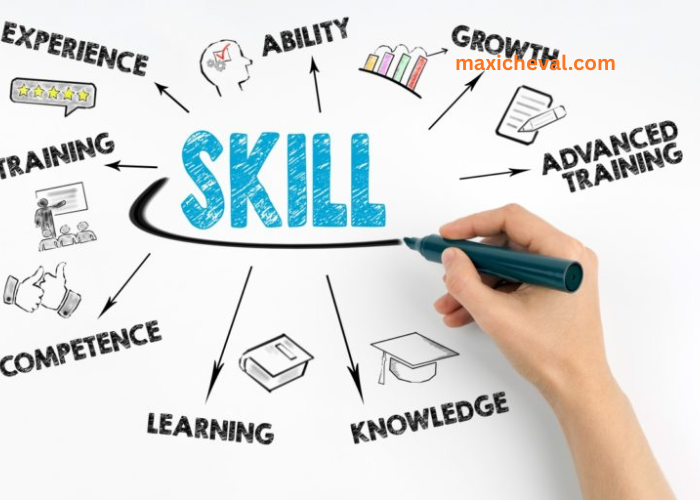In today’s competitive job market, having a degree or experience alone is no longer enough to stand out. Employers increasingly value skills, adaptability, and continuous learning — all of which are cultivated through intentional career and professional development. Building the right skills not only improves your current performance but also positions you for long-term growth and advancement.
Here’s a guide to understanding career and professional development and how to develop skills that truly differentiate you.
1. Understanding Career and Professional Development
Career and professional development refers to the ongoing process of learning, training, and growing to advance in your career. This can include:
- Technical skills: Specific abilities required to perform tasks in your job, like coding, financial modeling, or digital marketing.
- Soft skills: Communication, leadership, critical thinking, and problem-solving abilities.
- Industry knowledge: Understanding trends, regulations, and best practices in your field.
Investing in both technical and soft skills ensures that you’re not only capable of doing your current job well but also ready to take on new responsibilities or pivot when necessary.
2. Identify Skills That Differentiate You
To build skills that set you apart, first assess your strengths and gaps. Ask yourself:
- Which skills are highly valued in my industry?
- Where do I struggle compared to my peers?
- What skills could future-proof my career?
Resources like LinkedIn Learning, Coursera, or industry-specific certifications can help you identify and gain these high-impact skills.
Example: A software engineer might differentiate themselves by combining technical expertise with project management and team leadership abilities.
3. The Importance of Soft Skills
While technical skills get your foot in the door, soft skills often determine who rises to leadership positions. Key soft skills include:
- Communication: Clear writing, presentation, and interpersonal communication.
- Problem-solving: Ability to analyze challenges and propose effective solutions.
- Adaptability: Comfort with change and learning new processes quickly.
- Emotional intelligence: Understanding and managing your emotions and those of others.
Developing these skills can set you apart, particularly in roles where collaboration, leadership, or client interaction is critical.
4. Leverage Professional Development Resources
Many tools exist to enhance skills effectively. Examples include:
- Online Courses: Platforms like Coursera, edX, and Skillshare for both technical and soft skills.
- Certifications: Industry-recognized credentials validate your expertise.
- Mentorship: Learning from experienced professionals accelerates growth.
- Workshops and Conferences: Practical, hands-on opportunities to build skills and network.
Combining multiple resources creates a well-rounded professional profile.
5. Practical Steps to Continuous Learning
Building skills is not a one-time effort — it requires a structured approach:
- Set clear learning goals: Identify skills to develop and milestones for achievement.
- Dedicate time regularly: Even 30 minutes a day can add up to substantial growth over a year.
- Apply new skills: Take on projects, volunteer for responsibilities, or practice in real-life scenarios.
- Seek feedback: Regular evaluations help refine skills and highlight areas for improvement.
- Reflect and adjust: Track progress and adapt learning strategies as needed.
This structured approach ensures that your development is intentional and measurable.
6. Networking as a Development Tool
Professional development isn’t just about skills — it’s also about relationships. Networking:
- Exposes you to new ideas and best practices.
- Provides mentorship opportunities.
- Helps you learn about emerging roles and trends.
Attend industry events, participate in online forums, or join professional associations. Networking can be as valuable as formal education in setting you apart from peers.
7. Embrace a Growth Mindset
A growth mindset — the belief that abilities can be developed through dedication and effort — is critical to professional development. Individuals with this mindset:
- View challenges as opportunities to learn.
- Persist through setbacks.
- Actively seek feedback and opportunities for improvement.
This mindset encourages continuous learning and makes skill development a natural part of your career journey.
8. Measuring Your Progress
Tracking growth helps you stay motivated and accountable. Ways to measure development include:
- Maintaining a portfolio of completed projects or certifications.
- Asking for performance evaluations or peer feedback.
- Reflecting on new responsibilities or promotions you can now handle.
Quantifying progress not only boosts confidence but also demonstrates your value to employers.
Final Thoughts
Career and professional development is the strategic cultivation of skills, knowledge, and relationships that sets you apart in the workplace. By combining technical skills, soft skills, continuous learning, and a growth mindset, you position yourself as a versatile, high-value professional.
Investing in your development isn’t just about your next promotion — it’s about creating a sustainable, fulfilling career path that adapts with the changing demands of your industry.




